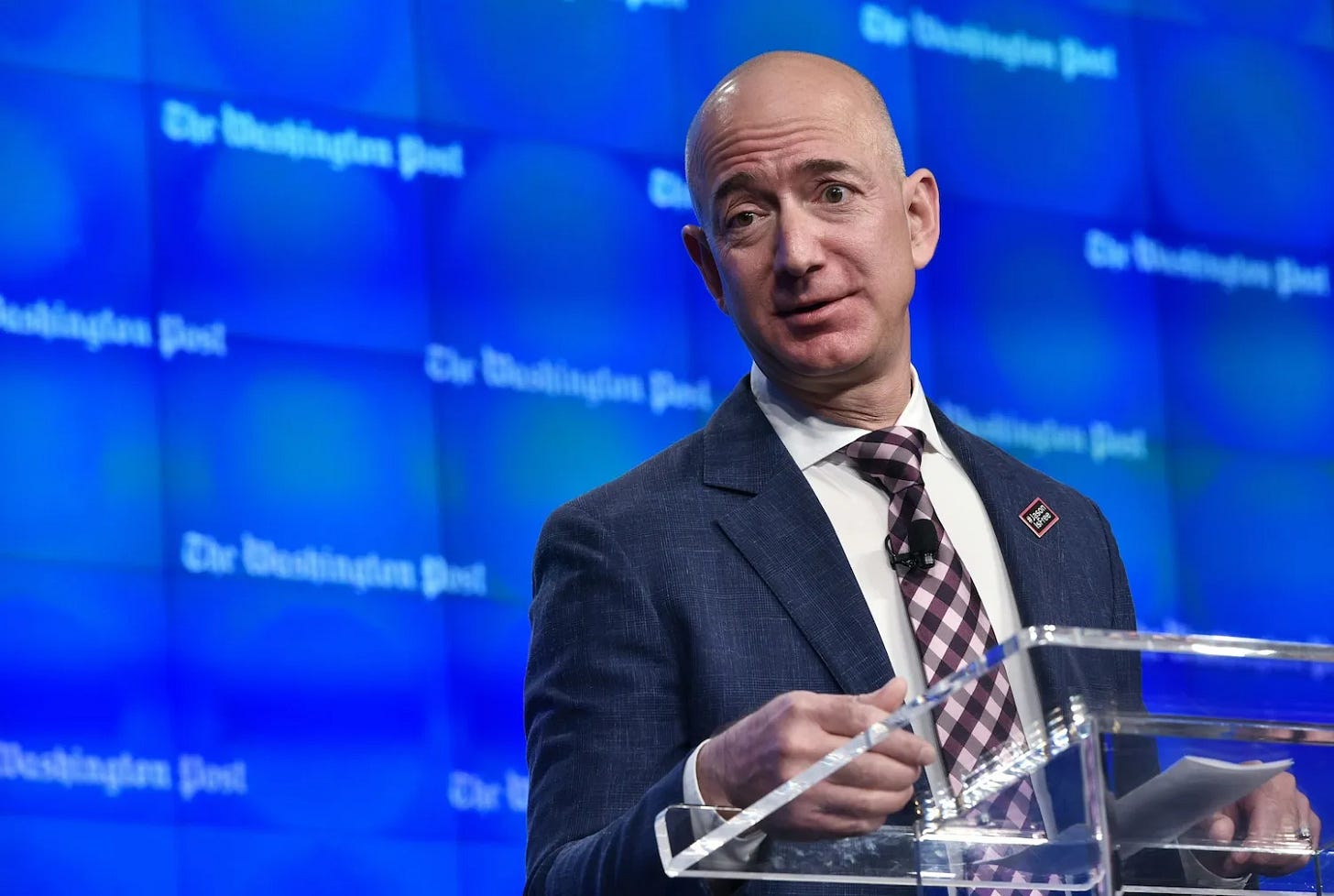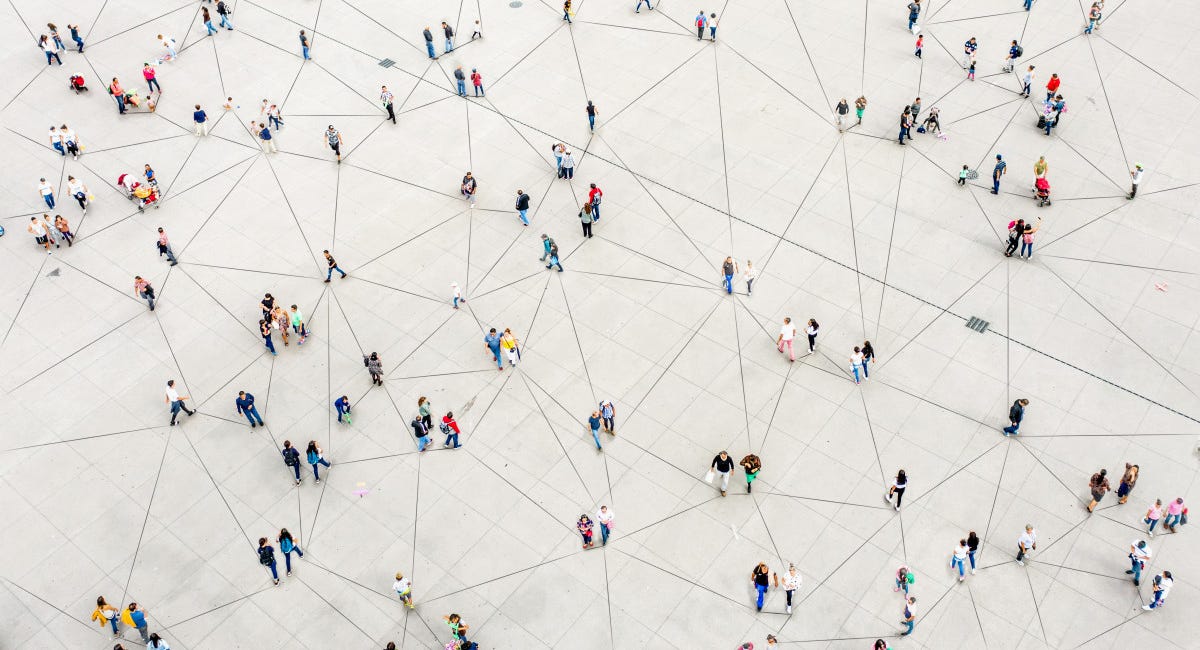Bezos is right about WaPo not endorsing Kamala Harris
Media is both a context-setting institution and an arbiter and must be seen as a neutral platform for competing ideas - not as a champion for any side
Published in the Times of India
Jeff Bezos, billionaire owner of Amazon and The Washington Post, and Patrick Soon-Shiong, owner of the LA Times, provoked outrage when they blocked their newspapers from endorsing Kamala Harris in the upcoming US Presidential election. Their move, widely interpreted as unprincipled billionaires trying to hedge bets in an uncertain election, led to resignations and subscription cancellations at both papers. But whatever their motives, their decision was correct.
Democratic politics is about peacefully negotiating differences between a population that must coexist. This requires the willingness to engage with all sides to find common ground. Instead, our politics and public discourse are increasingly characterized by contempt and antagonism. The resultant polarization is making negotiation impossible - and is as much a cause of breakdown in democratic politics as any one individual.
Coming back from the brink requires a return to routine politics of moderation and the willingness to understand the other side instead of dismissing it as illegitimate. For this, institutions that mediate between political actors - either by setting the context or acting as arbiters - must retain trust and credibility across the political spectrum.
While institutions such as the judiciary, regulatory bodies and electoral commissions act as arbiters, the media is both a context-setting institution and an arbiter. The media reports events and establishes shared informational ground. Through its coverage choices and analysis, the media shapes how society understands and prioritizes different issues. This role in facilitating public discourse - from informing to interpreting to reflecting societal norms and instigating accountability - is crucial to democratic societies.
However, for the media to play this role effectively, it must be perceived as a neutral platform for competing ideas, not as a champion for any particular side. In polarized times, this neutrality is essential, allowing people from all perspectives to engage openly. Endorsing any candidate, however principled, risks undermining this stance and alienating the other side.
This isn't about Kamala Harris or Donald Trump but their supporters. Democracy depends on maintaining the trust and participation of all citizens, and endorsements risk deepening existing divisions. When distrust already runs high, even well-intended endorsements can appear partisan, eroding the media's role as a space for diverse perspectives.
However, it will be a mistake to focus solely on formal endorsements as indicative of partisanship. The situation in India's media landscape offers an instructive contrast. While media houses maintain a formal policy of non-endorsement in elections, there is often evident partisan bias. Coverage bias manifests in story selection, headline framing, and disproportionate airtime - all while maintaining a veneer of institutional neutrality. This points to a broader truth: defending democracy is not just about eschewing endorsements but holding all public figures to consistent standards. It is this kind of pervasive neutrality that enables broader engagement by maintaining credibility across the political spectrum.
The obvious next question is what "neutrality" means, especially when one side appears to be openly challenging democratic norms. Can the media truly avoid "alignment" without remaining passive or silent on critical issues? Is "neutrality" just a euphemism for pusillanimity, a justification for complicity?
The response requires a careful ongoing negotiation between taking principled stands and actions which may look like factional alignments. Avoiding factional alignment doesn't mean refusing to take principled stands; it means grounding those stands in universal principles rather than partisan loyalties. The judiciary upholds the rule of law, and the media must uphold truth. However, these principles risk being compromised when the "bigger picture" - of defeating a particular candidate - takes on existential proportions.
With Trump's refusal to uphold basic democratic norms—such as an orderly transition of power—many leaders see him as a direct threat to democracy. In such cases, acting "neutral" may appear like ignoring an imminent democratic crisis. Yet defending democratic principles need not cross over into partisanship. When any figure tramples over democratic norms, the press is duty-bound to report it accurately and critically—not as adversaries, but as defenders of democratic principles. The media's role is to uphold public interest and safeguard democracy, not engage in personal opposition.
Neutrality, then, isn't about sitting on the sidelines but about maintaining the infrastructure of democratic discourse itself. Institutions can and must affirm values like democracy, integrity, and the rule of law. Seen this way, neutrality becomes a way to reinforce democratic pluralism, resisting factional capture, which is crucial for democratic resilience.
With democracy under pressure worldwide, our media institutions face a critical choice: become partisan warriors, further entrenching societal divisions, or recommit to principled neutrality that actively builds bridges. The media's power lies not in picking winners, but in strengthening democracy's essential infrastructure - the ability to surface disagreements, examine them rationally, and work toward solutions. By recommitting to this role through concrete practices rather than just high-minded rhetoric, news organizations can help citizens see each other as democratic collaborators rather than existential threats. In these polarized times, facilitating a truly expansive public discourse that can straddle and bridge partisan divides may be the most important contribution to democracy of all.
Also Read:




